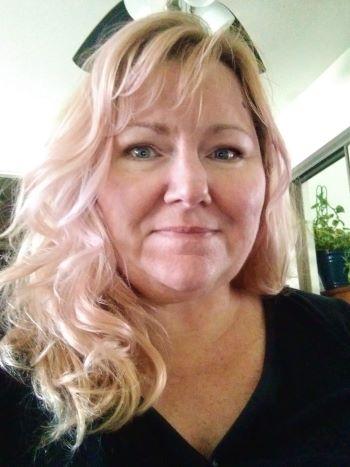May 1, 2021: For Mental Health Awareness Month, we’re spotlighting providers and advocates who are making a difference in our communities. Shannon Secrest wants you to know that while her experience is complex, it’s not unique.
Shannon Secrest wants you to know that while her experience is complex, it’s not unique.
For the last 15 years, the mother of two has fought to get quality care for her 17-year-old son, Logan, who has multiple disabilities and behavioral health conditions. Today, as the deputy director of the Colorado Cross-Disability Coalition, Secrest advocates for the thousands of families like hers who have been historically overlooked.
“I fell into this work because of my son,” she said. “This is not the work I thought I would be doing 20 years ago.”
Secrest spent the first years of Logan’s life grappling with his dual diagnoses, which included profound deafness and intellectual delays. Eventually she moved her family to Colorado so Logan could attend the Colorado School for the Deaf and Blind, but he was turned away due to his behavioral health issues.
“That is what set me down the path of understanding what my child’s rights were—what my family’s rights were,” Secrest said. “I got told ‘no’ a lot, or that I didn’t understand something because I was ‘just a mom.’”
Secrest threw herself into school finance and special education groups to learn more about public systems and advise on policy changes. Meanwhile, she was trying to piece together a care plan that would adequately address Logan’s physical and mental health needs. More often than not, she ran into a frustrating back-and-forth among providers and state programs.
“It was really this constant battle of getting his needs met, and they really were never met,” she said. “His behaviors actually became quite explosive.”
At one point Logan was taking nine different medications, which only exacerbated his psychosis. Her family reached a breaking point. Due to lack of inpatient providers in Colorado, Secrest was initially told she’d have to send Logan out of state to get the right care. She ultimately found services in Colorado but says families desperately need more inpatient options—and more support.
“Oftentimes, we push the burden on the family to find a solution,” Secrest said. “If you’re in crisis, you don’t have the physical or emotional stamina to make one more phone call. You are just so tired.”
It’s this mission—making things easier for families—that inspired Secrest to join the children’s subcommittee of Colorado’s Behavioral Health Task Force and the state’s Co-Occurring Disabilities and Behavioral Health Steering Committee, which is recommending solutions specific to Colorado’s disability communities. As the state overhauls public behavioral health, she hopes to see a new “system of care” that would seamlessly transition children from inpatient, outpatient and in-home services, depending on severity. The state also needs more psychiatrists who are equipped to treat patients with complex health conditions, she says.
Compared to a year ago, Secrest’s family is in a better place. Logan is home in Colorado, attending a specialized program for disabled children. Her daughter is succeeding in school and honing her musical talent. And with Governor Polis’ leadership on behavioral health reform, Secrest is hopeful things will finally improve for families and disabled people.
“This is probably the first time that I’ve seen traction and a real desire [for reform],” she said. “We have to hold on and know it takes time. Whatever is being implemented right now has to work for that next set of kids coming up so they don’t have to experience what my son experienced.”
Shannon Secrest is the Deputy Director of the Colorado Cross-Disability Coalition. She has more than 20 years of customer service management and administration experience in the corporate world and will graduate with a MPA with honors in May 2021. She sits on numerous State committees, commissions and boards, and is an avid mentor, trainer, and advocate. Her current focus is health policy, specifically centering on Medicaid, state waivers and home health care issues.
